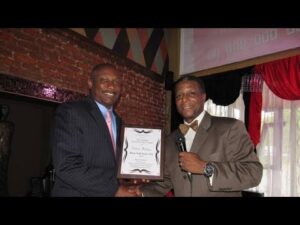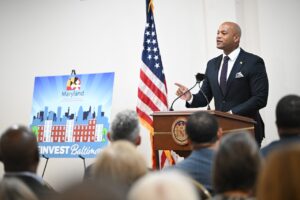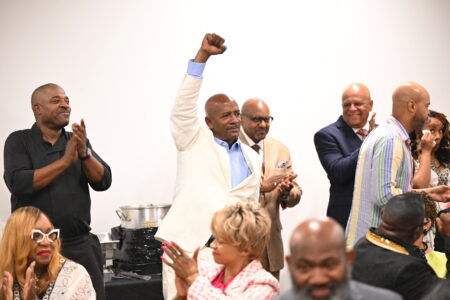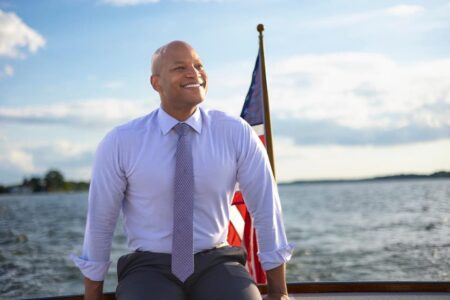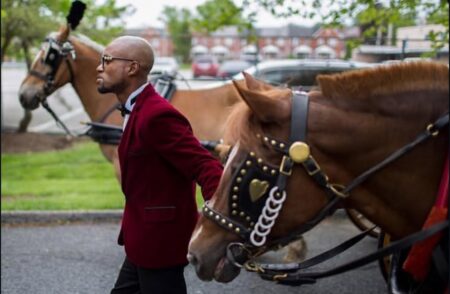By Doni Glover, Publisher
(BALTIMORE – June 13, 2024) – The recent decision by the United States Court of Appeals for the 11th Circuit against the Fearless Fund marks a disheartening moment in the ongoing struggle for racial equity in the business world. The court ruled that the Fearless Fund’s grant program, designed to support small businesses owned by Black women, is likely illegal because it relies on race to determine eligibility. This ruling is a setback for the Fearless Fund and a potential threat to countless initiatives to support communities of color.
Historically, Black-owned businesses have faced relentless attacks and systemic barriers perpetuated by an entitled mainstream America that frequently uses terms like diversity, equity, and inclusion without any genuine intent to diversify. This latest ruling is a stark reminder of these businesses’ persistent challenges, even as they strive to thrive in an inequitable environment.

The Fearless Fund’s grant program, which provides $20,000 and mentorship opportunities to businesses owned by Black women, is crucial for fostering entrepreneurship in a community that has long been marginalized. The court’s decision, however, suggests that such race-conscious initiatives are a form of reverse racism, a narrative that is deeply flawed and harmful. This perspective ignores the historical and ongoing disparities that Black entrepreneurs face and undermines efforts to create a more equitable business landscape.
Legal observers and nonprofits have raised alarms about the broader implications of this ruling. If other courts uphold the 11th Circuit’s conclusions, it could fundamentally disrupt philanthropy’s operations, particularly for private and community foundations that distribute billions of dollars annually. These foundations often target their efforts toward supporting marginalized communities, and this ruling could force them to reconsider their grant-making strategies.
A pivotal legal question in this case is whether philanthropic grants are a constitutionally protected form of free speech or whether contracts are subject to the same legal scrutiny as other types of commercial or governmental contracts. The 11th Circuit’s ruling leans towards the latter, viewing the Fearless Fund’s grants as contracts because they involve a “bargained-for exchange” where both parties obtain valuable benefits and undertake meaningful obligations. This interpretation aligns with the plaintiffs’ argument that the grant program violates Section 1981 of the Civil Rights Act of 1866, which prohibits racial discrimination in contracts.
However, this application of commercial contract law to philanthropic grants is overly simplistic and fails to account for the charitable sector’s mission-driven nature. As Rose Chan Loui, the founding executive director of the Lowell Milken Center for Philanthropy and Nonprofits at UCLA Law, points out, the drafters of Section 1981 likely did not consider the nonprofit context when they wrote the law in 1866. The ruling’s failure to distinguish between charitable contributions and commercial exchanges threatens to undermine the very purpose of philanthropic efforts to advance social justice.
The Fearless Fund ruling already impacts the grant-making plans of many donors, causing foundations to rewrite their grants and rethink their programs. This chilling effect on philanthropy is deeply concerning, particularly for initiatives aimed at advancing racial equity. Foundations and nonprofits in Alabama, Florida, and Georgia—the three states comprising the 11th Circuit—must now work with legal counsel to navigate this uncertain landscape and ensure their grant agreements comply with the new legal interpretations.
Black women-owned businesses are essential to our economy and communities, providing jobs, services, and inspiration. They represent resilience and innovation, often flourishing despite systemic barriers. Supporting these businesses is not about exclusion but about addressing historical inequities and creating opportunities where they have been systematically denied.
In conclusion, the ruling against the Fearless Fund is a call to action for all who believe in justice and equality. We must advocate for policies and programs that genuinely support Black entrepreneurs and challenge the misleading narratives of reverse racism. By standing firm against decisions that threaten progress towards a more equitable society, we can ensure that Black women-owned businesses receive the support they deserve, fostering a truly inclusive and thriving business community.

